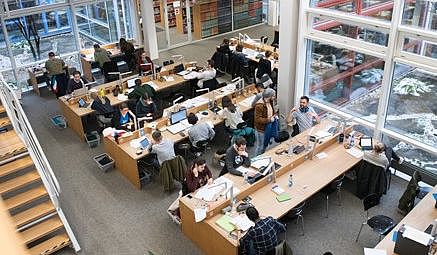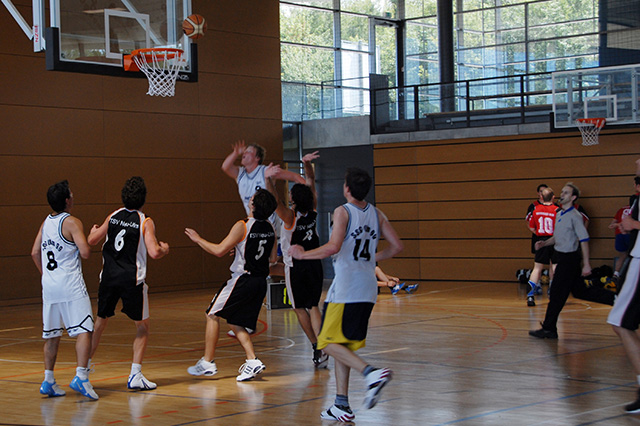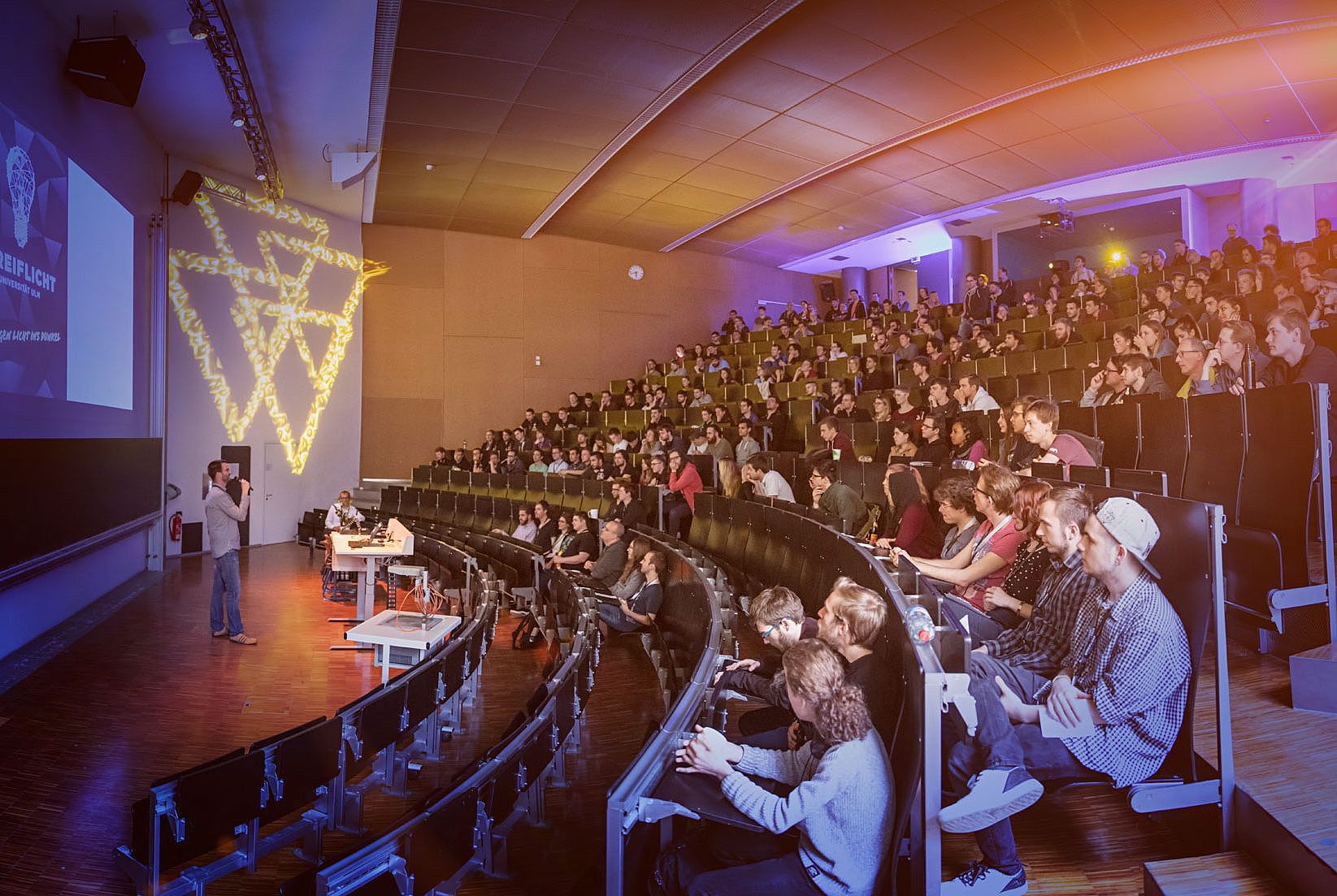Connecting people and technology
Shaping future technology actively and creatively

The interdisciplinary bachelor's degree program in media informatics combines the content of a classic computer science degree (practical, technical and theoretical computer science as well as mathematics) with design and multimedia content. You will learn the important basics in lectures in particular and then discuss, use and deepen these in supervised exercises, practice-oriented laboratories, interactive seminars, research-oriented group projects and the scientific bachelor thesis. Here you give free rein to your ideas and work, for example, with 3D printers, drones, frameworks, games, artificial intelligence, robots, social media, user experience tools, VR glasses and websites.
Bachelor of Science (BSc)
180
6
Shaping future technology actively and creatively
Our Media Informatics bachelor's programme combines the content of a traditional computer science degree with design and multimedia content. You will learn the fundamentals of the programme in lectures and then deepen your knowledge in supervised exercises, practice-oriented labs, interactive seminars, group projects and your bachelor's thesis. Here, you will give free rein to your ideas and work with 3D printers, drones, frameworks, AI, robots, user experience tools and VR glasses, for example.
Interactive visual design, programming, Mathematics, databases and theoretical and technical methods form the foundation of the programme. You will learn this step by step in interesting lectures, practical exercises and application-orientated projects. You will acquire a versatile skillset that will form the foundation stone for a successful degree programme.
Building on the Fundamentals of the programme, you will go into greater depth. In advanced lectures, exercises and seminars, you set your own focus and develop your skills according to your own wishes. Here you can give free rein to your ideas and work, for example, with augmented reality (AR), data science, computer vision, deep learning, artificial intelligence, neuroinformatics, human-computer interaction, visual computing and web engineering.
In small groups, you will develop ideas for exciting projects and realise them as a team, from conception to implementation. You will receive individual support from motivated lecturers. For example, you will apply agile software development, computer graphics, computer vision, design thinking, interactive storytelling, interactive information design, human resources fabrication, software engineering and user-centred design in practice.
At the end of your degree programme, you will be able to demonstrate the knowledge you have gained in a research project of your choice - your bachelor's thesis. You will develop new concepts, solutions and applications in the fields of apps, autonomous vehicles, drones, edutainment, games, innovative interaction concepts, artificial intelligence, Medicine visualisations, social networks and websites.
Got curious? Then come along and see everything for yourself. Once a year, students present the results of their projects and final theses in a spotlight. Our subject information days, study information days, taster lectures and our appearances at education fairs also offer a very good opportunity to take a direct look at studying. In everyday life, tutorials and exercises usually take place in small groups. You can have interesting conversations with students from higher semesters in the corridors or in the courtyard and you can usually drop in spontaneously for meetings with lecturers. The hierarchy in Media Informatics is very flat - so you're sure to bump into one or two doctoral students or lecturers at one of the numerous university parties.

During your Media Informatics degree programme, you will design and implement varied and creative projects in exercises, Applied subjects, the software internship and your bachelor's thesis
A great way to broaden your horizons in a discipline is to study at a foreign university. Ulm University students can apply for one or two semesters abroad at numerous universities, both throughout Europe as part of the ERASMUS programme and outside Europe. If lectures are not required, internships and theses at other universities are also possible.
Ulm University has exchange agreements with over 100 universities in 26 countries.
International Office

85% of students on the Media Informatics bachelor's programme enjoy or very much enjoy studying at Ulm University.
78% would choose to study Media Informatics again.
The majority of graduates expand their knowledge in a subsequent master's programme.
95% of our graduates find a suitable job within 4 months of graduating.
95% of these employment relationships are permanent. (Source "Teaching Report 2019 / University of Ulm")

Take part in Uni Sport

Big closing ceremony on Münsterplatz

Projects are presented at the Streiflich
Studying at the University of Ulm
Our big graduation party
A Brief Introduction to Ulm and Ulm University
The IT and computer science sector is booming and specialists who know what is technically possible and can develop innovative solutions are in demand like never before. It is precisely these specialists that we train; (akad.: ) education in Media Informatics. Specialists who work at the interface between Computer Science, Design, Technology and Engineering.
A major benefit of the programme is that graduates of the Media Informatics (study/degree) programme are not limited to one industry, but are sought after in all sectors of the economy. Typical employers come from the automotive industry, consulting, design, Electrical Engineering, healthcare, mechanical engineering, media, new media, optics, robotics, software development and web development and design.
The future appointments have exciting names such as "Full Stack Web Developer", "Frontend Developer", "Game Developer", "IT Consultant", "Software Engineer", "Scrum Master" and "User Experience / User Interface Manager".
Welcome to the most liveable city in Germany. Albert Einstein's birthplace is a unique combination of science, leisure, top employers and culture. Top locations and events such as the Ulmer Zelt, Nabada or the Donaufest attract visitors to the quaint streets. Here you feel at home!
Copyright: City of Ulm